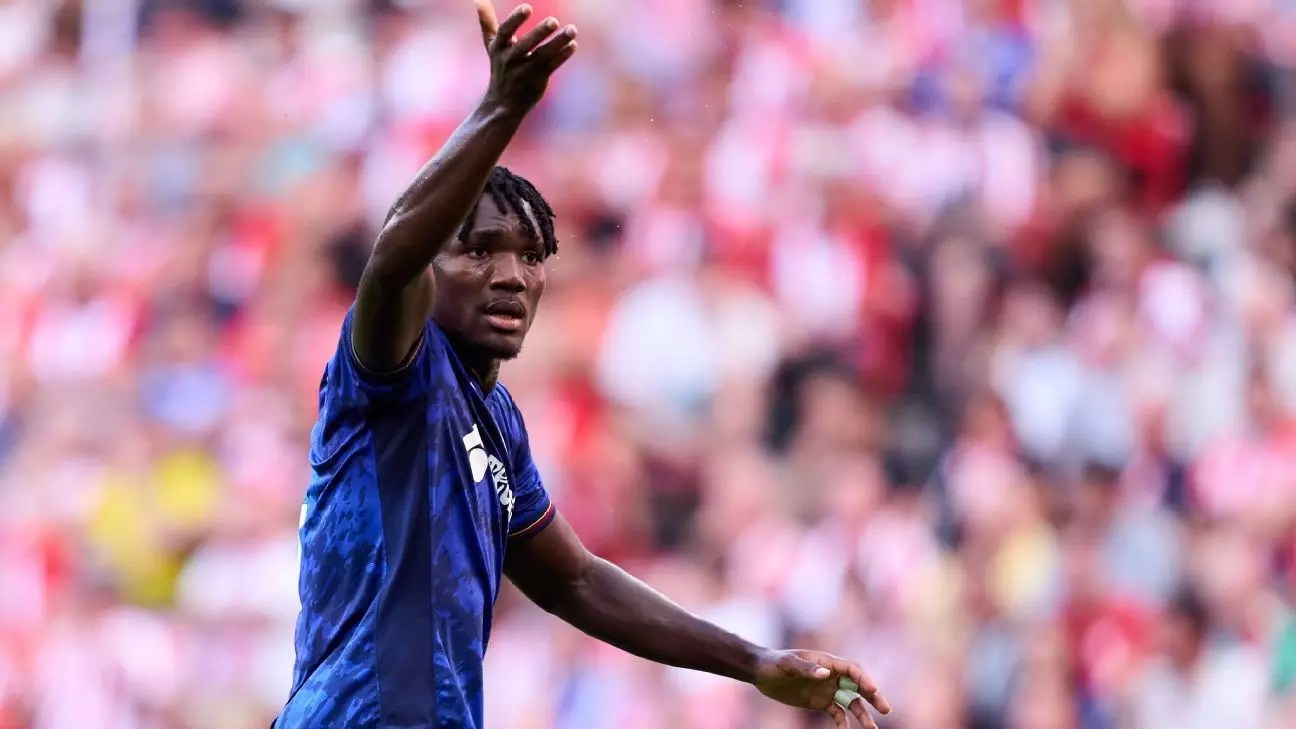In an era where sports are considered a powerful platform for social change, the voices of athletes like Christantus Uche from Getafe resonate louder than ever. The Nigerian midfielder has recently shared his troubling experiences within LaLiga, tackling not only the contentious role of referees but also the deeply troubling issue of racism that continues to mar Spanish football. Uche, at just 21 years old, is navigating the complexities of professional football while grappling with unjust treatment on and off the field.
One of the most glaring issues Uche raised involves the performance of referees during matches. Having transitioned to LaLiga from a lower-tier club, Ceuta, the disparity in officiating has been profoundly evident to him. “In my first few games, I noticed the referees’ reluctance to penalize fouls against me, while similar or even lesser offenses against other players drew immediate calls,” Uche expressed in an interview with ESPN. His sentiments highlight a significant concern that many athletes face – inconsistency in officiating based on perceived status or background.
The frustration is palpable; when faced with aggressive tackles, Uche feels powerless as the very individuals who should uphold fairness seem to overlook his plight. His observations are indicative of a systemic issue within sports that often favors certain demographics over others, creating an uneven playing field. Uche’s experience is not just a personal gripe; it symbolizes a larger conversation regarding the need for impartiality and accountability in sports officiating.
Beyond the pitch’s immediate physical challenges, Uche has bravely opened up about the racial abuse he has endured. His statements mirror those of other players in the league, drawing attention to the toxic environment cultivated by both fans and sometimes fellow athletes. Comments from supporters that reduce a player to derogatory labels based on skin color are not just hurtful; they are alarming reflections of a society struggling with inclusivity.
Uche’s assertion that some fans hurl racial slurs during matches sheds light on a pervasive issue that has systemic roots. Racism in sports, particularly in Spain, has been spotlighted in recent years, with fellow player Vinícius Júnior also enduring similar maltreatment. The alarming frequency of such incidents raises critical questions about protocols in place to address and combat racism, both at the club level and within broader football governance.
While Uche has faced numerous obstacles, he remains optimistic about his future in LaLiga. The opportunity to showcase his talent on such a prominent stage is not lost on him. “Playing in LaLiga is a dream come true,” he states. It is this duality of being a hopeful athlete while shouldering the weight of injustice that paints a complex picture of modern-day sports.
Moreover, Uche’s experiences resonate with the sentiments shared by Vinícius Júnior. The Brazilian’s warning that Spain may risk losing the privilege of hosting the 2030 World Cup if racism remains unaddressed underscores a pressing urgency to reform. Uche’s voice, alongside others, may serve as a pivotal catalyst for change – reminding governing bodies that athletes must feel safe and respected.
Christantus Uche’s candid remarks about referee biases and racial abuse urge us to re-evaluate our approach to inclusivity in sports. The challenges he faces are not isolated; they represent a broader struggle within the football community, calling for immediate attention and action. As Uche relentlessly pursues his dream, his fight against these injustices offers a glimmer of hope for both current and future athletes. It is a collective responsibility – from players to fans, from clubs to governing bodies – to ensure that the beautiful game remains a platform for equality and respect for all.


Leave a Reply